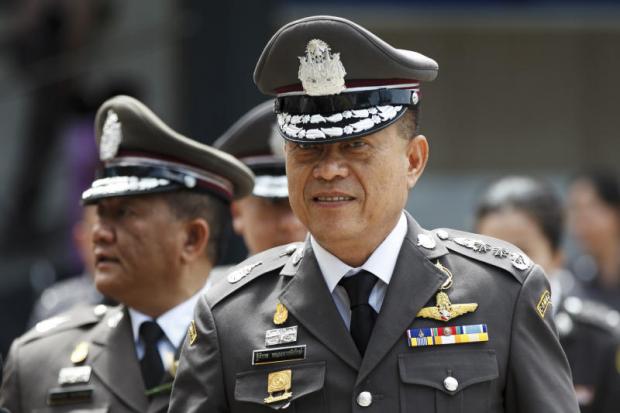
Police are clamping down on lese majeste offences by shifting their focus to viewers of illegal content even if they do not post or share it.
The move aims to curb digital content containing or promoting breaches of Section 112 of the Criminal Code, also known as the lese majeste law.
According to Central Investigation Bureau (CIB) chief Thitirat Nongharnpitak, users of social media will be treading a narrow path as police plan to target viewers in the crackdown even if they do not interact with those illicit webpages.
The move has been triggered by police limitations in tracking down producers of illegal content posted on social media outlets such as Facebook and YouTube, said the CIB chief in an interview with the Bangkok Post.
The CIB is a core agency in cracking down on producers and distributors of digital content deemed offensive to the institution of the monarchy.
According to Pol Lt Gen Thitirat, lese majeste cases involve three groups of people: the producers of illegal content; the viewers who leave comments, share content or click Like; and those who read or view without interacting.
The producers have fled overseas and authorities have limited resources to bring them to justice, he said, adding that Thai authorities have tried to pursue this group but they usually claim the charges are politically motivated.
The second and third groups are mostly in the country, he said.
Pol Lt Gen Thitirat said legal action was being taken against people who share illicit content and many claim they have done it unknowingly. The police are moving on to the third group to effectively stem illegal duplication.
"The third group simply follows and watches. They leave no comments. Police are acquiring tools to identify this group of viewers and investigate why they like watching [the content]," he said.
"Watching lese majeste content may be deemed wrongdoing."
However, he said police initially will not use legal action against this group of social media users.
Police will approach them, talk with them and warn them first. However, not all viewers will be warned. Police will screen those who have the potential to commit offences. The procedure will be conducted on a case-by-case basis and information from an investigation will be taken into account.
"We have to screen them [the third group] and move on to make sure that they will not slip into the second group," he said.
According to the CIB commissioner, among those who produce illicit content is British journalist Andrew MacGregor Marshall, who faces lese majeste charges.
The Ministry of Digital Economy and Society in April warned people not to exchange information online with three prominent critics of the regime who are wanted for breaking the country's strict lese majeste laws.
They are prominent historian Somsak Jeamteerasakul, academic Pavin Chacha- valpongpun and Mr Marshall. All three live outside Thailand.
Transgressions include "following" any of the three people on their Facebook pages, according to the ministry.
Asked about the latest push to block webpages with illicit content on Facebook, Pol Lt Gen Thitirat said the social media giant is among the main channels used by the first group to communicate with others.
He said Facebook and YouTube have given good cooperation in blocking illicit video streaming from their local network server, called a content delivery network.
If the measure works, there will be no need for police to go after the second and third groups, he added.
"When the content is blocked from the start, the second and third groups can't access it. Police will not have to go and talk to those who share or correspond and are accused of harassment. It's best to nip it in the bud," Pol Lt Gen Thitirat said.
Last week Facebook was asked by the National Broadcasting and Telecommunications Commission (NBTC) and the Ministry of Digital Economy and Society to remove 131 webpages that contained illegal content.
The targeted pages contain content deemed a security threat or in violation of lese majeste laws. According to the NBTC, Thai authorities are satisfied with the cooperation from Facebook, which has blocked many illicit webpages, reducing their number from 309 to less than 100.

